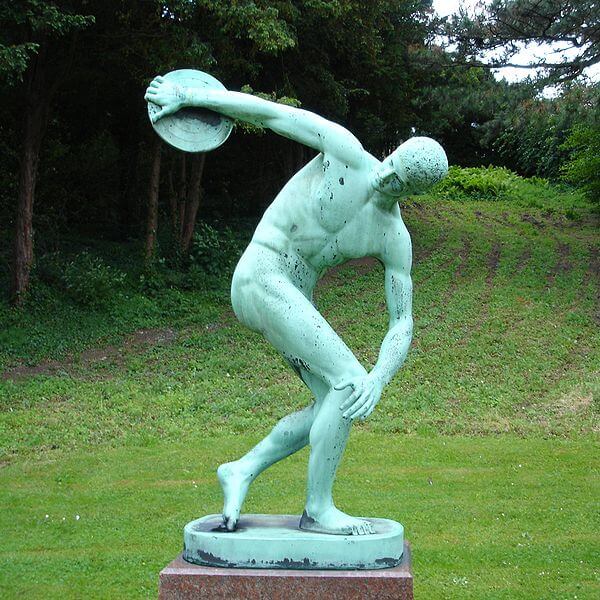The priests asked to participate in the training of the body and its exercises, and not to be used only as scouts

In the book of XNUMX Maccabees it is said that the priests would rush to the Palestra (ie from the wrestling area, or the wrestling school) "according to the call of the discus" (XNUMX Maccabees XNUMX:XNUMX), or in another translation - "after the call of the discus".
What is that "reading"? Some explain it as the sound of the discus landing on the ground, since its throw opened the series of games, and the sound of the landing served as a signal for the start of the games, or is it a metallic plate ("gong"), when hitting it was a signal for the start of the competitions.
Some deny this altogether and claim that the discus throw did not take place at all in Palestra, a place intended for wrestling competitions.
And there are those who believe that "according to the reading of the discus" is a symbolic expression that means - when the training exercises began, or when the oil was distributed to the athletes. The oil, as we know, was intended for the pinning of the body, and was a common and common commodity among the wrestlers.
It seems that a solution to the problem may be found in the source itself (written in Greek). In the textual section in the original it says, "Horgias mata tan to disco prosclasin". The last word that clarifies the meaning - "Prosklasis" means "an invitation to appear", such as an invitation to a trial. Therefore, the translation of the passage should be as follows: "As soon as the invitation to participate in the discus throwing (competition) was sent", and the change in the manuscript says: "Proclasin" under "Proclasin". "Prosclasin" comes in the meaning of a challenge, or a challenge that sets a mother against her opponent (a kind of "throwing down a gauntlet"). That is, it is about a real competition and taking part in it.
From the interpretation of the passage in Greek, we witness two facts: first - at the Jerusalem facility they threw a discus, second - we are not talking about a casual invitation, but a special invitation to take part in training (and/or competitions). Hence the priests asked to participate in the training of the body and its exercises, and not to be used only as scouts.
And we will return in this context to the interpretation of the Greek text: "... (and in their contempt for the temple and in their absence from sacrifices) they hastened to take part in training (games?) that are contrary to the law (Torah?) of the Palestra". That is, it is about taking a real part in training and maybe even in competitions.
And now to the question of throwing the discus in Palestra. In its classical origins, the palestra was a wrestling school. It was a typical Greek building, with an open courtyard in the center (for the use of the wrestlers), and around it the bathrooms, the body pin and a wardrobe. In the course of time, almost every gymnasium contained the palaestra facility (and in many cases the former grew out of the latter) and in the Hellenistic period (the period we are dealing with in this chapter, like its predecessors) this combination was a common phenomenon. Therefore, we should not be surprised that the author of the book of Maccabim uses the language "Palestra", although at the beginning of his words he mentions the Gymnacion, and hence, the use of the author of the book of Maccabim XNUMX of the term "Palestra" may well indicate the place only, that is, the Gymnacion (which included the Palestra) ). And so the assumption is strengthened that they did indeed throw a discus in the Jerusalem gymnasium, considering a branch that started the series of competitions.

4 תגובות
I don't think this is evidence regarding the sage view of gymnastics.
Very simply - it is known that the priests in Beth Shani were corrupt in all respects, and that most of the high priests did not even finish their term. It doesn't mean that sages looked favorably on it, they just had nothing to do.
: )
The premise of your comment sounds convoluted, although its essence should not be dismissed. The Sipa can justify on the one hand any historical confirmation and on the other hand any historical, historiographical and historiosophical rejection.
Thanks
The writers of the books of Maccabees slandered the priests in order to justify the concept of the High Priesthood by the Hasmoneans. Therefore it is not certain that they were telling the truth.